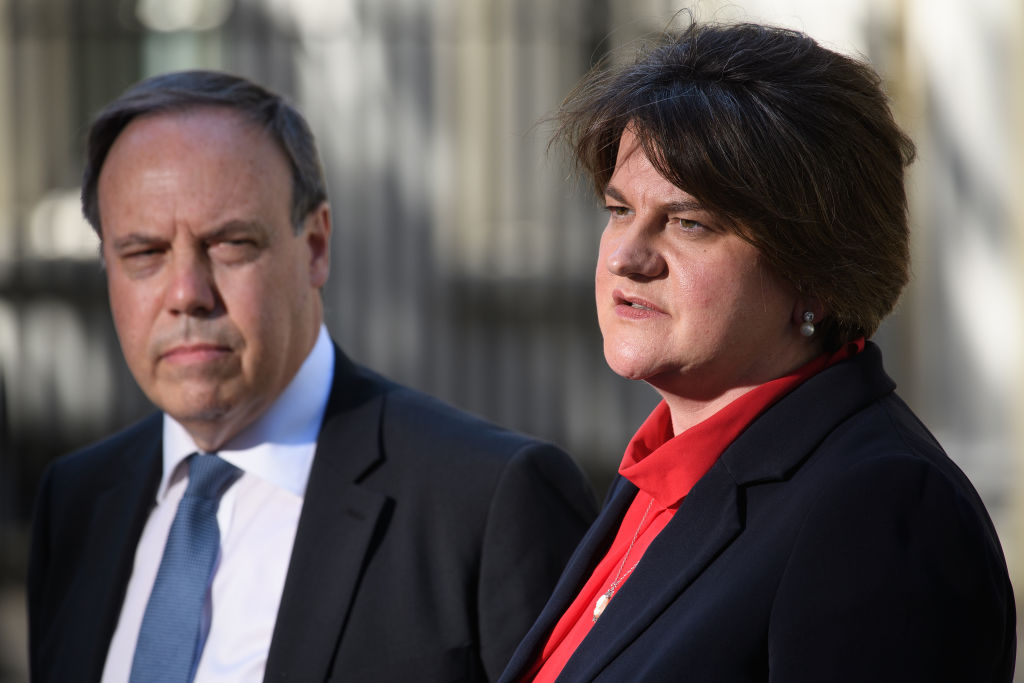Here we go. As Boris Johnson heads to Brussels today for the EU council summit, hope inside government that Johnson will be able to pass a provisional deal in the Commons this Saturday is fading. Despite progress in talks between the UK, Brussels and Ireland, the Prime Minister is yet to successfully convince his confidence and supply partner – the DUP – to back what is being proposed.
In a statement released this morning, Arlene Foster and Nigel Dodds said:
‘As things stand, we could not support what is being suggested on customs and consent issues, and there is a lack of clarity on VAT.’
They go on to say their party will continue to engage in discussions with the government:
‘We will continue to work with the government to try and get a sensible deal that works for Northern Ireland and protects the economic and constitutional integrity of the United Kingdom.’
Foster lists both the proposals on customs and consent as problematic. There had been a sense from those involved on the UK and Irish side that customs was nearly resolved and consent was the outstanding issue. Leo Varadkar and Boris Johnson attempted to make progress on the latter issue on Wednesday afternoon. However, the DUP worry is that the proposed consent mechanism would hand too much power to Sinn Fein over future arrangements in Northern Ireland.
So, where does this leave the chances of a deal? Without the support of the DUP, Johnson will find it very hard to pass a deal. He would effectively need every ERG member, every Tory rebel and then several Labour MPs to make it work. However, several Tory Brexiteers have suggested they will only back the deal if the DUP do – on the grounds it must respect the union. As Jacob Rees-Mogg tells James and me in the new issue of the Spectator, the support of the DUP is crucial to a deal passing the Commons: ‘The first stumbling block must be the DUP, mustn’t it?’ says Rees-Mogg. ‘People say, “Do the DUP therefore have the whip hand?” No, it’s not like that. The Prime Minister is a Unionist. He wouldn’t want to bring forward a deal that wouldn’t work for Unionists.’
Johnson could still agree to a legal text – without the backing of the DUP. While he could try to bounce them into supporting the deal, such a move didn’t work out well for Theresa May. It’s clear the DUP haven’t given up entirely and – as experienced negotiators – they will know that pushing for concessions when your opposite number is up against a tight deadline can be a fruitful pursuit.
The prospects of a deal now hinge on whether the DUP or EU are prepared to move further. Either way, the timing of this means that it is getting harder for Johnson to present MPs with something that will pass the Commons on Saturday.







Comments